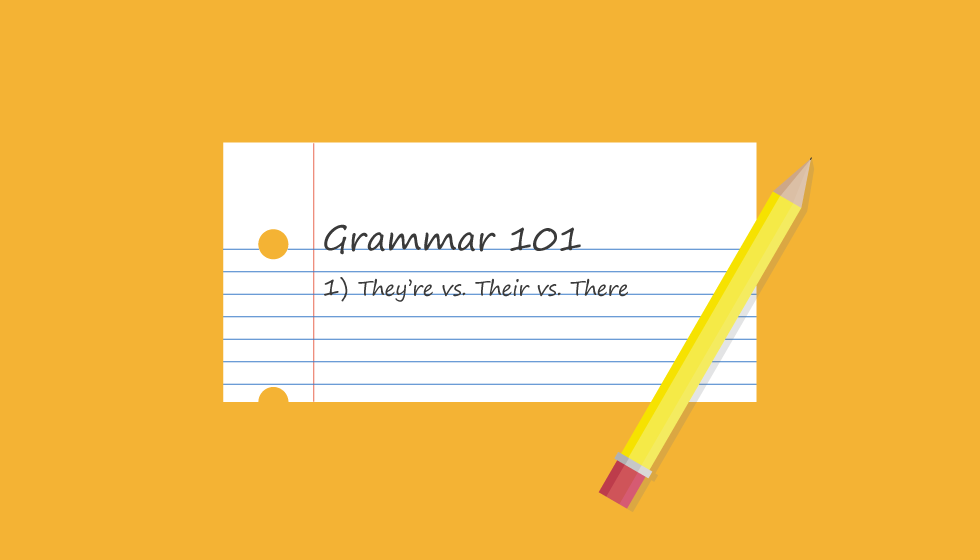

As a business professional, you want to make the best impression on your potential customers. As digital marketing is becoming more and more important, your online presence is one of the first places your customers may see you.
You know what that means? Your grammar needs to be top-notch! No one is perfect and occasional mistakes aren’t the end of the world, but your business should try to be as grammatically correct as possible.
Think of it this way — if you see a Facebook post by a business you wanted to potentially shop at, but they made some obvious grammar mistakes, would you still want to shop with them?
Like I said, grammar isn’t make or break for everyone, but it’s an important aspect that your business needs to watch.
Keep reading to learn how to avoid the most common grammar mistakes.
1. They’re vs. Their vs. There
I see this grammar mistake all the time, so let’s talk about the difference.
They’re is a contraction of they are, their is the possessive form and there refers to a place. Here are some examples of how they are used in a sentence:
2. It's vs. Its
This one can be a little confusing and even I get them mixed up on occasion.
It’s is the contraction of it is or it has while its is the possessive form. Use these examples to help you understand the difference:
Did you realize that there was a difference between complement and compliment? Surprise!
Although these words are pronounced the same, they are quite different. Compliment is used as a form of praise, such as complimenting someone’s new coffee mug.
Complement, on the other hand, is adding to something to enhance or improve it, such as “That cover letter complements your resume.”
4. Affect vs. Effect
I will never judge you if you use the wrong form of this word because it can be complicated.
Affect is a verb while effect is a noun. Maybe that didn’t help, so let me break it down:
Jack is in a restaurant and wants to order dinner, which affects what his server is doing. After Jack eats his dinner, the effect is that his stomach is full.
Make sense?
5. Me vs. I
I have a great tip to help you know whether you should use me or I in a sentence. Here's the example:
When you finish updating the menu, can you send it to Mallory and me?
Believe it or not, that sentence is correct! If you take out the name Mallory from the sentence, using me instead of I makes much more sense.
If you need help catching some of your grammar mistakes, you can always use the free version of Grammarly or pay for the premium version.
6. Never Double Space After a Period
Quick history lesson!
Back when people were learning to type on typewriters, they were instructed to put two spaces after a period. Why? Because typewriters used monospace typesetting, meaning that every letter was given the same amount of space.
Once they got to the end of their sentence, people would double space after the period to make it clear a new sentence was starting.
Guess what? You don't have to double space after a period anymore (unless you're still using a typewriter)! Offenders of this simple grammar mistake are typically ones that learned how to type on a typewriter.
7. Missing Comma After Introduction
I see this grammar mistake far too often, so pay attention to learn how you can avoid it!
When you're writing a sentence, you will add a comma after an introductory word, phrase or clause (exactly what I did in this sentence). This comma allows you to slightly pause and adds clarity to your sentence.
Here's an example of an incorrect sentence:
In case you haven't heard I talked to the boss yesterday.
Without a comma, you will read the incorrect sentence all together rather than separating it with a comma to give you that slight pause.
The correct sentence would read:
In case you haven't heard, I talked to the boss yesterday.
Final Thoughts
Grammar errors can drastically change the meaning of your sentence if you're not careful!
Even though grammar may not be the most important part of running your business, it can deter people from visiting your location. Use these final tips to stay a step ahead:
Subscribe to our email list to get the latest digital marketing content delivered to your inbox each week!